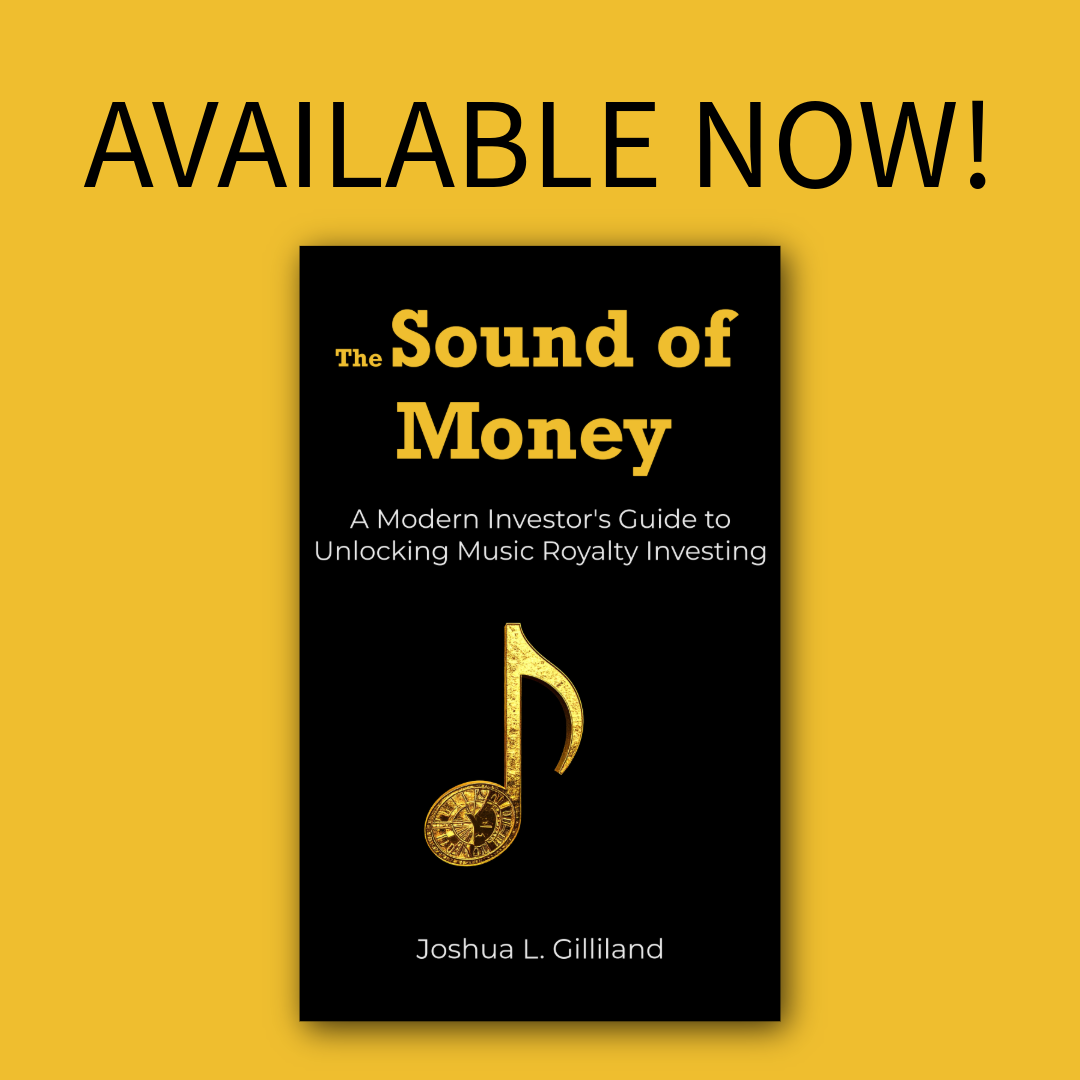Three Paths, One Goal: Finding Financial Freedom
On the blog and podcast, we've been on a mission: to understand the world of music royalty investing. We’ve broken down the two fundamental copyrights that form the bedrock of every music asset—the Composition and the Master—and we’ve learned how to value a specific "slice" of a song’s income, not the whole pie.
But this all leads to the next logical and most important question: How do you actually get a piece of that pie?
For an individual investor, there are three primary paths to add music royalties to their portfolio. To make it tangible, let's use an analogy from an asset class you already know: real estate.
Path 1: The Stock Market Approach (The REIT) 📈
This is the most traditional and indirect way to gain exposure. In real estate, this is like buying shares in a publicly-traded Real Estate Investment Trust (REIT). You're investing in the property market, but your return is also subject to the company's management and the daily whims of the stock market.
In the music world, this means buying shares in companies like Universal Music Group (UMG), Sony Music (SONY), or Warner Music Group (WMG).
Pros: It’s simple, transparent, and highly liquid—you can buy and sell shares instantly in any brokerage account.
Cons: Your investment is highly correlated with the broader stock market, which defeats the core goal of diversification. Your return is based on the company's overall profitability, not the direct performance of the songs themselves.
Path 2: The Fund Approach (The Syndication) 🏢
This path gets you one step closer to the royalties themselves. In our analogy, this is like investing as a limited partner in a private real estate fund or syndication that buys and manages an apartment complex for a pool of investors.
Here, you buy shares in a fund that exists solely to acquire music catalogs. The most famous example is the Hipgnosis Songs Fund. However, its recent struggles and acquisition by Blackstone highlight a key risk: the fund's stock price can become disconnected from the value of the music it holds.
Pros: You get instant diversification and professional management.
Cons: These funds charge high management fees, and you have no control over which catalogs are bought or sold.
Path 3: The Direct Ownership Approach (The Rental Property) 🏠
This is the path we focus on in The Sound of Money, and it's the direct equivalent of buying a rental property yourself. You find the asset, do your own due diligence, and your return is tied directly to the performance of that specific property—not the stock market.
With this approach, you purchase the royalty rights to a specific song, album, or catalog through an online marketplace like Royalty Exchange, ANote Music, or SongVest. It requires the most work, but in my opinion, the rewards and stability are unparalleled.
Pros: You have total control, your returns are directly correlated to the music's performance, and there are no ongoing management fees.
Cons: The responsibility for due diligence is entirely on you, and it's less liquid than selling a stock.
Which Path Is Right for You?
While all three paths offer exposure to the music industry, our mission at The Sound of Money is to equip you for Path 3. Direct ownership is the key to building a truly passive, non-correlated income stream that you control.
To take a deep dive into the platforms that make this possible and learn the exact frameworks I use to analyze every deal, pre-order your copy of The Sound of Money: A Modern Investor's Guide to Unlocking Music Royalty Investing today.
And be sure to subscribe to the JG Sound of Money Podcast, where we'll be breaking down these platforms one by one in the coming weeks.
Finally, don't start your journey empty-handed. Download the free Advanced Investment Calculator—the exact tool I use to model returns and make disciplined, data-driven decisions.
Analyze Deals Like a Pro
Want to run the numbers on your own deals? Download the free "Advanced Investment Calculator"—the official companion tool to The Sound of Money. Join the pre-launch list, and we'll send it to you instantly.

